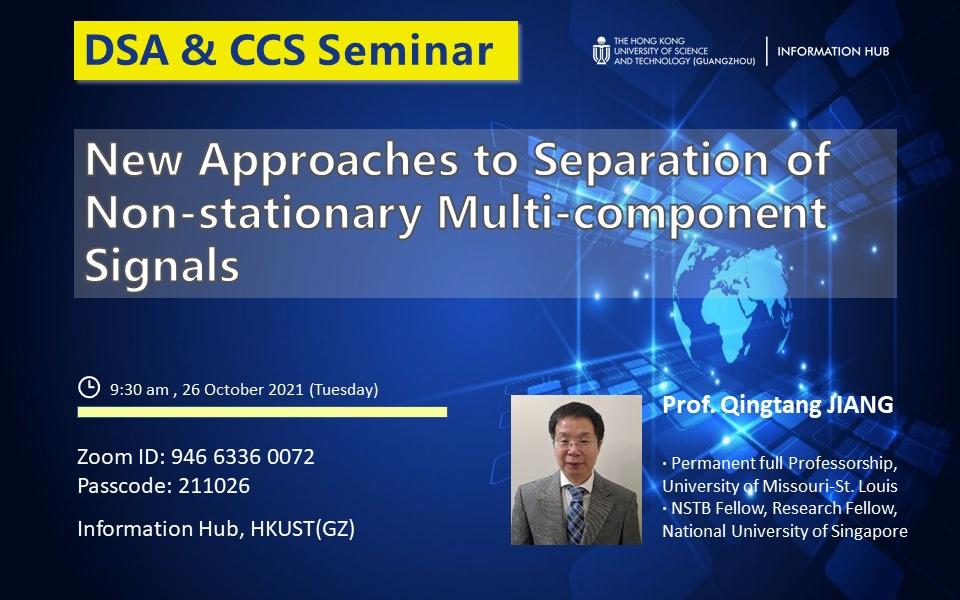DSA Thrust Seminar | New Approaches to Separation of Non-stationary Multi-component Signals
In nature, real-world phenomena in the form of signals (or with data acquired as time series) are often affected by a number of factors and appear as time-overlapping multi-component signals (or time series). To better understand such phenomena and to facilitate processing the signals, the unknown components of the multi-component signal of interest should be extracted from the blind-source data. This is an inverse problem with a long history dating back to 1795, when the French engineer, Gaspard de Prony developed an ingenious computational scheme, called Prony's method, for separating the sum of complex exponents, assuming that the number of terms is known. Prony's method immediately applies to extracting the unknown frequencies of stationary signal components of a multi-component signal.
However, for non-stationary signals (i.e. with frequencies of the components being functions of the time variable), there has been no rigorous mathematical approach available, till the introduction of the synchrosqueezing transform (SST), by Ingrid Daubechies and her collaborators a decade ago. Unfortunately, even with the efforts by the authors and other researchers, SST applies only under very restrictive specifications, and in addition, several undesirable limitations still remain unresolved. In this presentation, we will discuss two improvements of SST. Firstly, a time-varying parameter is introduced to the original SST to remove some of the restrictions, particularly on frequency separation, for more robust separation of signal components. Secondly, we will discuss our most recently developed time-scale-chirp_rate (TSC_R) approach to separate multi-component signals even with crossover instantaneous frequency curves. Our TSC_R maps a signal into a 3-dimensional space of time, scale and chirp-rate, as opposed to the traditional 2-dimensional space of time and scale. Demonstrative examples will also be presented.
Qingtang received his Ph.D. in Mathematics from Peking University in Beijing, China, and his post-doctoral training, first as an NSTB fellow, then as a research fellow, both at the National University of Singapore, and finally as a visiting scholar at the University of Alberta, Canada. His academic career in the USA evolved from a visiting position at West Virginia University to the current permanent full Professorship at the University of Missouri-St. Louis. His most recent research interests include: image restoration, sparse signal representation, component recovery of non-stationary signals and data learning.
